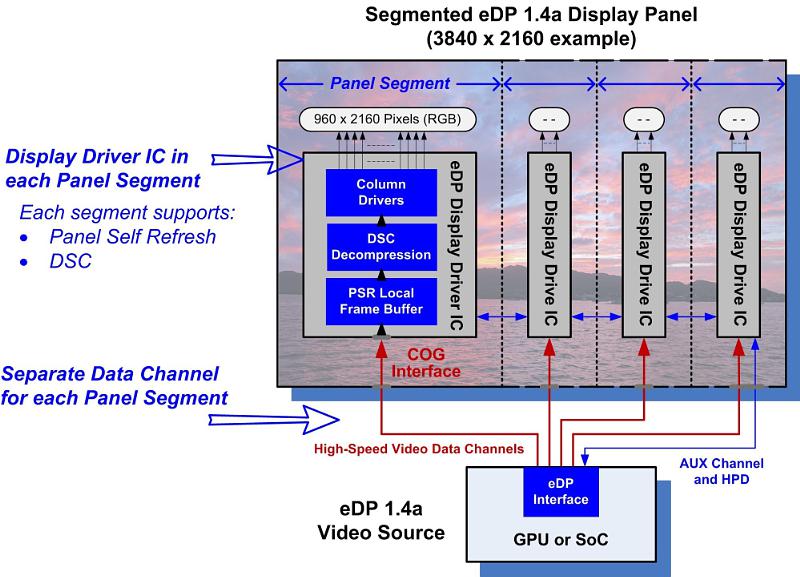
The Video Electronics Standards Association has announced Embedded DisplayPort (eDP) 1.4a—the newest version of the popular video port specification. eDP 1.4a supersedes version 1.4, which was first introduced two years ago in February 2013.
Version 1.4a includes upgrades to the Display Stream Compression (DSC) standard and segmented display panel capability, allowing for greater data rates at lower power consumption. The new standard can move bits at 8.1 GB/s per lane and can be divided into two or four screen segments, adding up to a theoretical limit of 32.4 GB/s. It can support 8K (7680 x 4320) resolution at 60 Hz, and 4K at 120 Hz with 10-bit color.
It should be noted that while eDP is part of the DisplayPort family, it and DisplayPort (which is currently on a 1.3 spec introduced in September 2014) aren't identical. Instead, eDP is designed for internal connections, such as machines with integrated graphics like tablets, smartphones, or notebook-gpu connections. eDP won't be changing the capabilities of the monitor you connect to your desktop PC, then, but the 1.4a spec will affect the capabilities of integrated displays in the future. 4K laptops and tablets, here we come.
eDP 1.4a (as well as the previous 1.4 version) also supports Adaptive Sync, also known as AMD's FreeSync technology, but it's an optional feature within the standard.
The new standard will be available to VESA-member hardware developers immediately, but as usual, it takes time for a new standard to make its way into consumer hardware. We expect to see machines built using eDP 1.4a to emerge by 2016.
The biggest gaming news, reviews and hardware deals
Keep up to date with the most important stories and the best deals, as picked by the PC Gamer team.
As the former head of PC Gamer's hardware coverage, Bo was in charge of helping readers better understand and use PC hardware. He also headed up the buying guides, picking the best peripherals and components to spend your hard-earned money on. He can usually be found playing Overwatch, Apex Legends, or more likely, with his cats. He is now IGN's resident tech editor and PC hardware expert.


